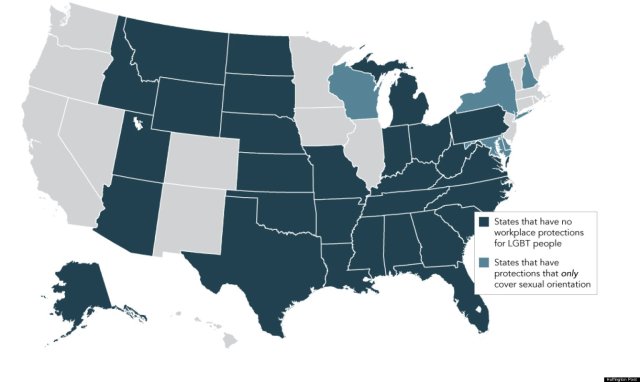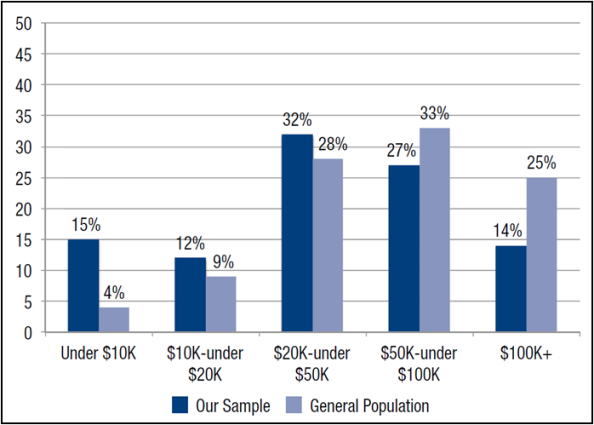
Obama Closes Out Pride Month By Extending Workplace Protections to Transgender Federal Employees
As a part of the White House’s Pride Month Celebration on Monday, President Barack Obama announced that he would be signing an executive order that would grant workplace protections to federal employees based on their gender identity. This comes a few weeks after he announced another executive order banning federal contractors from discriminating based on sexual orientation or gender identity. Together, these two executive orders bring some much-needed protections to one of the most discriminated against groups when it comes to hiring practices and workplace behavior.

The Obamas speaking during the White House’s Pride Celebration. via Metro Weekly
President Obama’s previously announced executive order covers all employees of federal contractors, which accounts for more than 20% of the American workforce. According to the Williams Institute, this means that 11 million workers received new sexual orientation protections and 16.5 million workers received new gender identity protections. Many companies that had previously resisted granting gender and sexuality protections risk losing government contracts if they don’t now offer those protections. One major example, according to Freedom to Work president Tico Almeida, is ExxonMobil, “who have fought against LGBT protections for years [and] will finally have to reconsider their retrograde position if they want to continue profiting from hundreds of millions of dollars in taxpayer-funded contracts.”

Information as of November, 2013 via Huffington Post
Now, President Obama is extending a 2009 memorandum he issued that gave protections and benefits to gay, lesbian and bisexual federal employees to transgender and gender non-conforming employees. He said that since the Employee Non-Discrimination Act has stalled in Congress, he feels like he needs to step forward and take some action.
I’ve repeatedly called on Congress to pass the Employment Non-Discrimination Act. Right now, there are more states that let same-sex couples get married than there are states who prohibit discrimination against their LGBT workers. We have laws that say Americans can’t be fired on the basis of the color of their skin or their religion, or because they have a disability. But every day, millions of Americans go to work worried that they could lose their job – not because of anything they’ve done… but because of who they are. It’s upsetting. It is wrong.
The majority of Fortune 500 companies already have nondiscrimination policies to protect their employees because it’s the right thing to do and because many say it helps to retain and attract the best talent. And I agree. So if Congress won’t act, I will. I have directed my staff to prepare an executive order for my signature that prohibits discrimination by federal contractors on the basis of sexual orientation and gender identity.
And I’ve asked my staff to prepare a second executive order so that federal employees – who are already protected on the basis of sexual orientation – will now formally be protected from discrimination based on gender identity as well.
Transgender people, and especially trans women and trans women of color, face alarming rates of workplace discrimination in the US. According to a 2011 report, transgender people face double the unemployment rate of the general population. That number jumps to four times the national unemployment rate for trans people of color. When it comes to the living in poverty, transgender people are almost four times as likely as the general population to make less than $10,000 a year. Finally, a whopping 90% of trans people surveyed said that they were harassed or mistreated at work and 47% reported that they had been fired, not hired or denied a promotion because of their gender. With numbers like these, trans people need all the protections they can get, and since there is no federal law protecting trans people from workplace discrimination, this announcement has many transgender workers breathing a sigh of relief.
On a day where we got some seriously awful news out of Washington, DC, it’s nice to see that there’s at least some good that can come out of national politics. Both of these executive orders are definitely positive steps forward. Not only do they put serious pressure on both the government and companies who have federal contracts to treat their employees fairly, but it also puts pressure on Congress to finally pass a federal law to put these protections on the books.
